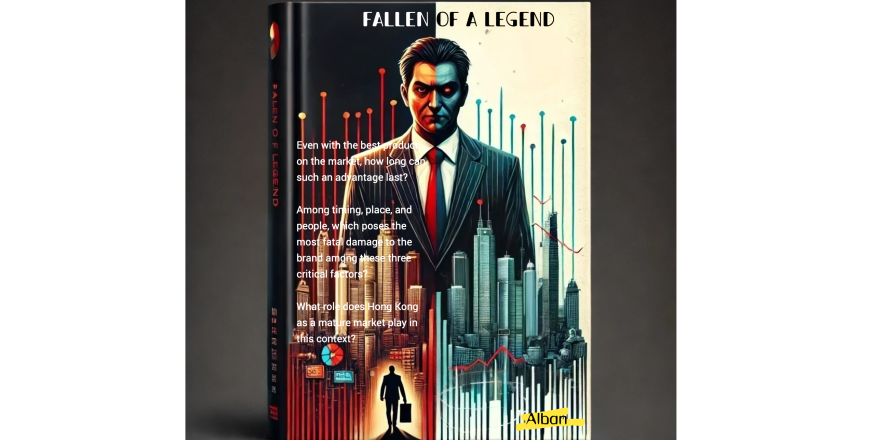 x
x
In a company like Allie Medical, where high-tech products are at the core of its offerings, the sales team represents the frontline to drive growth. The expectations placed on Allie's salespeople were traditionally high. They needed strong business sense and a deep understanding of the company's advanced products. When introducing any new technology, time and expertise are essential to ensure the learning process goes smoothly to overcom any challenges. Doctors, in particular, could only feel confident using new technologies when supported by an experienced sales team, which helped products succeed in the marketplace.
However, under An Zhiyin’s leadership, the role of the sales representatives was reduced to just meeting sales targets. The depth of product knowledge and advanced sales skills that were once considered essential for Allie's salespeople were no longer valued. In the past, Dr. Fang had routinely organized product training at weekly sales meetings and required each sales representative to pass exams before interacting with clients. But An Zhiyin dismissed these practices as unnecessary. He believed salespeople only needed to be familiar with the numbers, and there was no need for regular product training. Following these directives, the sales team stopped actively seeking to learn about the products.
As a result, the company frequently received complaints from doctors, who found that Allie’s salespeople lacked professionalism and adequate support. The high level of customers’ respect for Allie’s sales team began to fade, as salespeople were now more focused on requesting orders at the end of each month, rather than offering insightful guidance. This shift led to a deterioration in the company’s relationship with its clients and eroded the trust that had been carefully built over the years.

At the same time, the market saw a surge of competitors leveraging pricing advantages to attract customers. In the past, Danny would encourage the sales team to share competitor intelligence during meetings, ensuring the sales team knew their competition well. He even organized role-playing exercises to help the team prepare for various scenarios. However, An Zhiyin disapproved of discussing competitors at meetings, fearing it would create panic. He attempted to import Taiwan’s opaque management style into Hong Kong, enforcing a "just follow the boss’s orders, don’t ask, just do it" policy. As a result, the sales team avoided discussing market competition, naively believing that Allie's products were unbeatable. This ostrich-like mentality caused them to overlook market dynamics, leading to a significant decline in business performance.
During Ma Yonglong’s weekly meetings, the sales team members often made excuses for missing their targets, those excuses such as typhoons, doctors being on holiday, patients being unavailable, poor economic conditions, or consumer spending shifting to mainland China. They would present a flurry of numbers and repeatedly promise that the following week would improve, but reality rarely met these assurances. Strangely, Ma Yonglong never held anyone accountable. Instead, he seemed indifferent, as if merely enduring the three-hour meetings was sufficient to fulfill his role, without addressing the root causes of the declining sales.

Due to the sales team’s lack of in-depth product knowledge, they resorted to price wars to attract customers, constantly offering discounts to drive volumes. However, Allie has always been known for its high-quality products and exceptional service. If customers were looking for cheaper alternatives, there were plenty of other brands with better pricing options. This reckless discounting damaged the carefully cultivated brand image Allie had built in Hong Kong and undermined the long-standing value associated with its products.
Ironically, to fulfill his promise of "developing new customers" to top management, An Zhiyin broke the long-standing practice of linking discounts to order quantities. In the past, larger orders would receive better discounts, creating an incentive for customers to place bigger orders. Now, even small-order customers enjoy the same discounts as major clients. With no additional benefit to placing larger orders, customers had little motivation to increase their purchase volumes. As a result, many of Allie’s loyal large clients began to shift towards lower-cost brands, seeking higher margins elsewhere. This led to a loss of Allie's key clients, further eroding its market share in Hong Kong.

Some senior employees, witnessing the decline of Allie Company, were filled with sorrow. Once a prestigious and respected sales team within the industry, Allie’s salesforce became a group of uninspired and unmotivated "job seekers." Was this downfall the employees’ fault, or did the responsibility lie with upper management? As the saying goes, "The type of boss shapes the type of employee." Under the leadership of An Zhiyin, who lacked empathy, and Ma Yonglong, who focused solely on pleasing the boss without genuine passion for his work, Allie’s future in Hong Kong could only be described as "more tragic than sorrow itself."
This reflection on the leadership problem illustrates how the company’s internal culture had deteriorated from one of pride and excellence to mere survival. It underscores the disconnect between upper management and the values that had once made the company thrive. The lack of empathy and uninspired leadership stripped the employees of their drive and reduced the company’s ambitions to mere shadows of their former selves.
ns 15.158.61.14da2





















